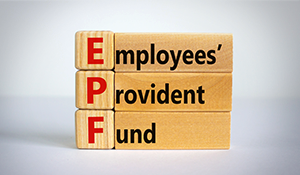The Provident Fund (PF) department has recently intensified the scrutiny of PF contributions made for International Workers employed in India. Let’s look at the context, mandatory requirements of the Act, payroll compliance and solutions.
The context
The Government of India had made it mandatory for International Workers (IWs) to contribute to the Provident Fund in India, the social security fund of India, by a notification issued on 1 October, 2008. The central government had also initiated a bilateral Social Security Agreement (SSA) with few countries. This agreement defines the applicability of PF to workers from those designated countries.
The list of countries, who have an SSA with India, is displayed on the PF website under the International Worker section.
Definition of IW
An IW is defined as:
- All foreigners (non-India passport holders) working in India in an establishment covered by the PF Act, except those belonging to countries, which have signed Social Security Act with India. Employees from countries who have signed SSA with India are required to comply with the social security contributions as per the SSA.
- Indians (India passport holders), who’ve worked partly in India during the year and partly in a country, which has signed an SSA with India, but are contributing to the social security of another country.
Applicability
The special provisions apply to all establishments employing IWs and to which the Employees’ Provident Fund and Miscellaneous Provisions Act, 1952 applies. It also includes all the establishments to which exemption from the operation of Employees’ Provident Fund Scheme, 1952 has been granted or Relaxation Order issued.
Compliance Requirements
For complete details, please read the blog.
Payroll
- Compute the monthly PF on total salary (Global basic salary + DA + Retaining Allowance, if any, + cash value of any food concession) drawn monthly. The wage ceiling of INR 6,500 does not apply. If IW receives part salary in India and part overseas, then global basic salary will be considered for this purpose. If IW receives all salary overseas but works partly in India and partly overseas, even then total global basic salary will be considered for this computation.
- Employer contribution treatment: The 8.33% portion that is diverted to the Pension Fund is to be computed on total salary (not restricted to wage ceiling of INR 6,500).
- For India passport holders deputed overseas, maintain their PF account in India if they are working in a country with whom India does not have SSA but employee is required to contribute to local social security due to work permit/tax laws.
- All establishments covered under the PF Act are required to file monthly returns in Form IW1, indicating details of IW in their establishment. If there are no IWs, then NIL returns to be filed.
- IWs, who are from countries with SSA, are required to declare their status at the International Workers portal of the PF department and obtain the certificate of coverage.
- Every eligible IW must be enrolled from the first date of his employment in India.
Withdrawal
Contributions for IW may be withdrawn only on completion of 58 years of age. The IW’s PF account will remain active even if they leave the country earlier and no contributions are made in the intervening period. Provision of inoperative accounts will not apply to IW. Employees covered under SSA may withdraw as per the relevant clauses of SSA.
Pension will be paid based on the period of service. Pensionable service is the service for which contributions are received and/or receivable as also the period of service rendered and considered as eligible under a SSA that may cover an IW.








